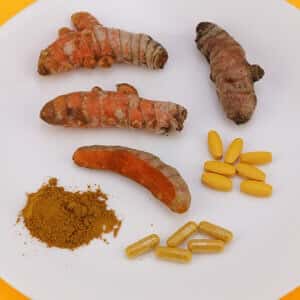
People with chronic joint pain have difficult decisions to make. Do they take a pain reliever on a regular basis and risk the sometimes serious side effects, or do they limit their activities to what they can manage without medication? Neither option is good.
No wonder people are on the lookout for nondrug approaches to alleviating joint pain. Here is what one reader found:
Q. I was a candidate for knee replacement, which I did not want. When two series of steroid shots into my knee didn’t relieve the horrible pain, my doctor suggested that I try taking turmeric capsules. That was a year ago.
In addition to taking turmeric, I have also been drinking grape juice with Certo in it. I’m 63 and I haven’t felt this good in years. I no longer have tendinitis or knee pain, though I know my regimen sounds weird.
A. We’re glad your physician is open-minded about non-drug approaches for arthritis and chronic pain. There are dozens of studies demonstrating that the active ingredient in turmeric, curcumin, has anti-inflammatory activity.
Turmeric vs. Ibuprofen
A randomized controlled trial comparing a turmeric extract to ibuprofen for knee osteoarthritis found both treatments equally effective for pain relief (Clinical Interventions in Aging, March 20, 2014). The turmeric extract was less likely to cause stomach upset. People on anticoagulants cannot use turmeric or curcumin, however, as there may be an interaction that could lead to dangerous bleeding.
You can learn more about turmeric from our interview with Ajay Goel, PhD, of Baylor University Medical Center. In it, he describes his research on the value of curcumin for fighting gastrointestinal tumors.
Other Remedies
We discuss other approaches to alleviating joint pain in our Guide to Alternatives for Arthritis. We aren’t aware of any studies of Certo (plant pectin) in grape juice. There are, however, a few studies demonstrating that the purple compounds in grapes have anti-inflammatory activity (Food & Function, Apr., 2015).

